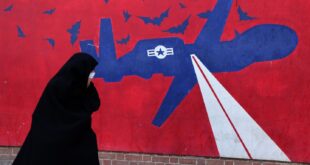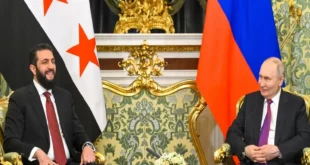Despair, chaos and relief reign at the no man’s land between Israel and Gaza, where an infant with third degree burns waits for a ticket out, writhing in pain as US nationals rush to freedom.Sheltering in the shadow of an old corrugated metal shack, until Hamas seized armed control a refreshment hut for travellers but now ripped to pieces by looters, Mohammad Sliman Al Hazin fans the face of his four-year-old son.
Baha’s face is badly burnt and his hands and feet little more than stumps. His throat makes a hissing sound when he breathes. His injuries are all the result of a fire at the family home in Gaza caused by an electrical fault. “I need electricity to wire up his breathing apparatus,” says his father.
Mobile phone glued to his ear, Hazin dials repeatedly and ever more desperately the number of a Palestinian liaison agent to find out about getting into Israel, to hospital and medical treatment. No one answers.
“They told me the Israelis have my name. Where is the Red Cross?” he says, on the verge of breaking down. “Why isn’t anyone coming?” Evacuating the sick and wounded from the Gaza Strip has become complicated since Islamist movement Hamas seized power after a week of deadly gunbattles with mainstream Palestinian security forces and a power struggle dating back months.
Staff at the Palestinian health ministry, who once coordinated the passage of those going to Israel for medical treatment, no longer go to work.
The International Committee of the Red Cross has since sought to fill the breach, providing the coordination link between the Israelis and Palestinians, in the absence of any contacts with Hamas — sworn enemies of the Jewish state.
Also waiting for the Israeli gates to open, is Hisham Abu Shaaban, a Palestinian money-changer married to a Turkish woman, anxious to rejoin his family in peace and security in the Turkish city of Izmir on the Aegean coast. “What am I going to do there? I still don’t know. I just want my wife and son to be safe,” he said. “Soon we’ll see car bomb attacks in Gaza. It’ll be Iraq here soon.” In the car park at the border terminal, more than two dozen Palestinians, mostly women and children, lucky enough to have an American passport and a coordinated flight out, are preparing to leave. “We got the green light last night. I’ve been packing all night in order to leave today,” says one woman sitting on a bus, refusing to give her name but saying she heads the Palestinian American Friendship Association in Gaza.
Eyes hidden behind her sunglasses, she tells her living hell since the clashes began and her fears now that Hamas is in full control.
“My house is near the presidential palace. For days, it was shooting, killing and violence. I stayed two weeks in my house. I was afraid to go out. There was shooting at my front door,” she says.
“I don’t care who’s in power but I don’t want a party who are murderers and thieves.
“There’s no freedom here. There’s no security for our lives. I feel sorry because this land is part of me but I can’t live here,” she says, now homeward bound for her American home in Atlanta, Georgia.
“This time I just came to visit and I got trapped because of the situation. Now I’m returning to Dallas where I have family,” said Mona, a young human rights worker wearing a headscarf, not looking back.
 Eurasia Press & News
Eurasia Press & News


